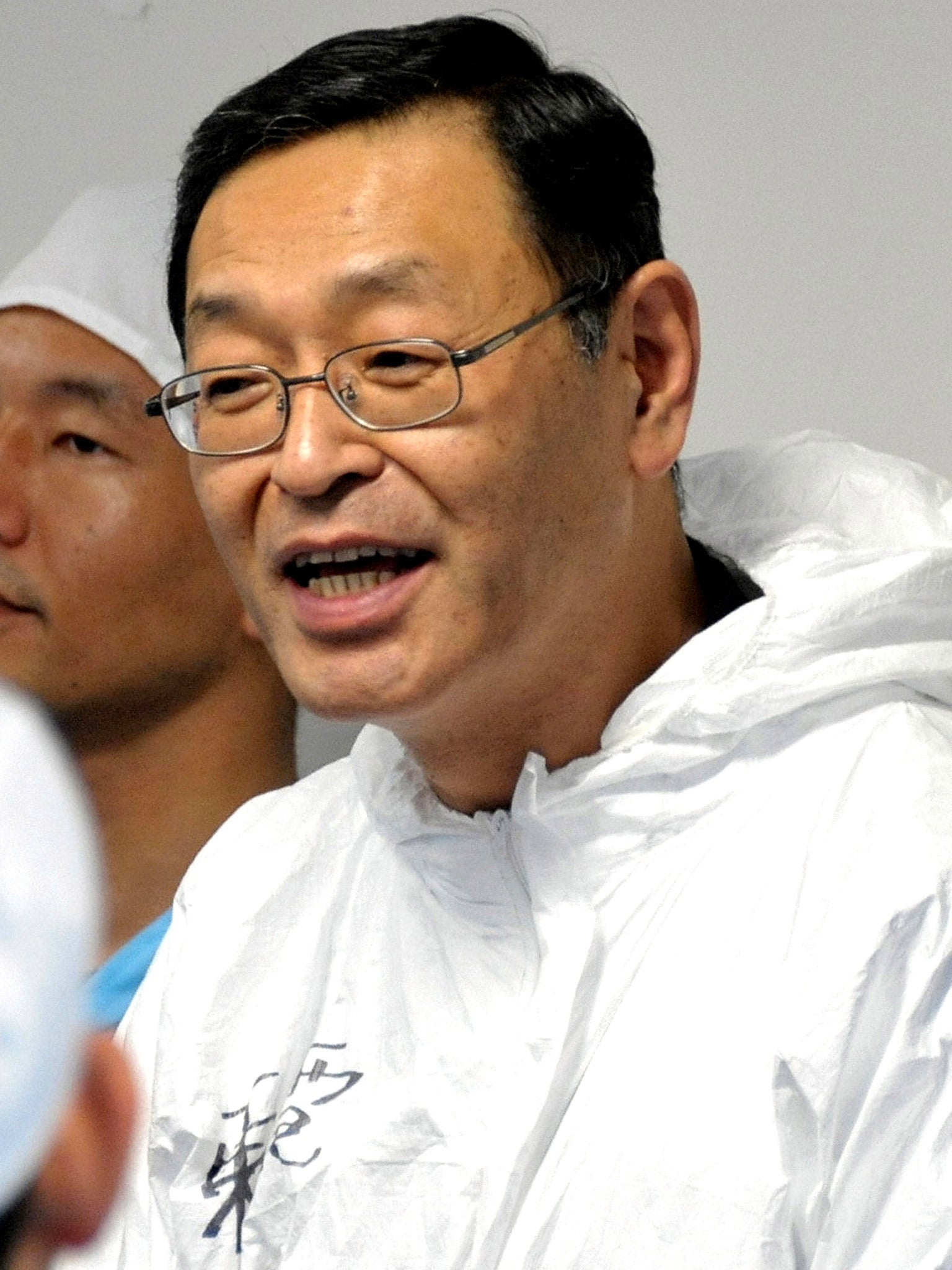Japanese ‘hero’ who saved Fukushima plant from total meltdown dies of cancer
Yoshida was widely praised for staying in post and limiting the impact of the nuclear disaster

Your support helps us to tell the story
From reproductive rights to climate change to Big Tech, The Independent is on the ground when the story is developing. Whether it's investigating the financials of Elon Musk's pro-Trump PAC or producing our latest documentary, 'The A Word', which shines a light on the American women fighting for reproductive rights, we know how important it is to parse out the facts from the messaging.
At such a critical moment in US history, we need reporters on the ground. Your donation allows us to keep sending journalists to speak to both sides of the story.
The Independent is trusted by Americans across the entire political spectrum. And unlike many other quality news outlets, we choose not to lock Americans out of our reporting and analysis with paywalls. We believe quality journalism should be available to everyone, paid for by those who can afford it.
Your support makes all the difference.When he could eventually talk about what happened, he said he thought he was going to die. As manager of the doomed Fukushima Dai-ichi nuclear plant, he was in the cockpit of the world’s first triple meltdown and, like the captain of an atomic-age Titanic, seemed prepared to go down with his ship. Today, Masao Yoshida died of cancer, leaving behind many unanswered questions from the worst nuclear disaster in quarter of a century.
Mr Yoshida will forever be identified with the battle to bring the Dai-ichi plant under control. On 11 March 2011, he and his team of engineers watched in horror from inside the plant’s earthquake-proof bunker as a tsunami flooded the turbine buildings and disabled 12 of the 13 emergency generators. As the control room was plunged into darkness, Mr Yoshida knew his team might not survive.
Remarkably, there was no plan for what to do next because nobody from his company, Tokyo Electric Power (Tepco) had predicted total loss of power at a nuclear plant. As a string of hydrogen blasts tore the plant apart, Mr Yoshida and his team improvised, trying to stop an even worse calamity. Many in Japan consider him a hero for ignoring orders to stop injecting seawater into one of the reactors. His bosses feared the water would destroy it.
The crisis climaxed in the night of 14 March: three of the six reactors were out of control and spewing a vast toxic cloud toward the world’s most populated metropolis. About 1,300 fuel rods in the reactor four building, normally 16ft under water, had boiled dry, raising the spectre of a nuclear fission chain reaction and contamination worse than a reactor meltdown. As Tokyo slept, Mr Yoshida, wearing his blue boiler suit, pulled together his staff. “Go home,” he said. “We’ve done what we can here.”
Had his employers ordered a full pullout from the plant, leaving it to spiral out of control, or was he just telling some to leave? When he broke his silence 17 months later, Mr Yoshida said the thought of running hadn’t entered his mind, despite panic in then Prime Minister Naoto Kan’s office that he and his team intended to do so. “We at the plant never said a word about withdrawal,” he said in a video message.
But this dedicated company man and devout Buddhist never spoke to the media. He only agreed to the video because he said the personal stories of the men who had stayed behind to fight the disaster were not being heard. “I felt we have to find ways to get our message across,” he said. When he had recovered, he would go back to work in Fukushima, he insisted.
A heavy smoker, Mr Yoshida was diagnosed with oesophageal cancer about six months after the meltdown and left his post in December 2011. In July last year he suffered a brain haemorrhage. Tepco denies the radiation he absorbed caused either. The company says his total exposure from the time of the accident until his resignation was 70 millisieverts, within acceptable limits for a plant worker. But many will not find it difficult to believe that the stress of those six months helped weaken his body.
Mr Kan tweeted: “I bow in respect for his leadership and decision-making. I wish I had the chance to talk to him at length about the nuclear disaster once again.”
Join our commenting forum
Join thought-provoking conversations, follow other Independent readers and see their replies
Comments